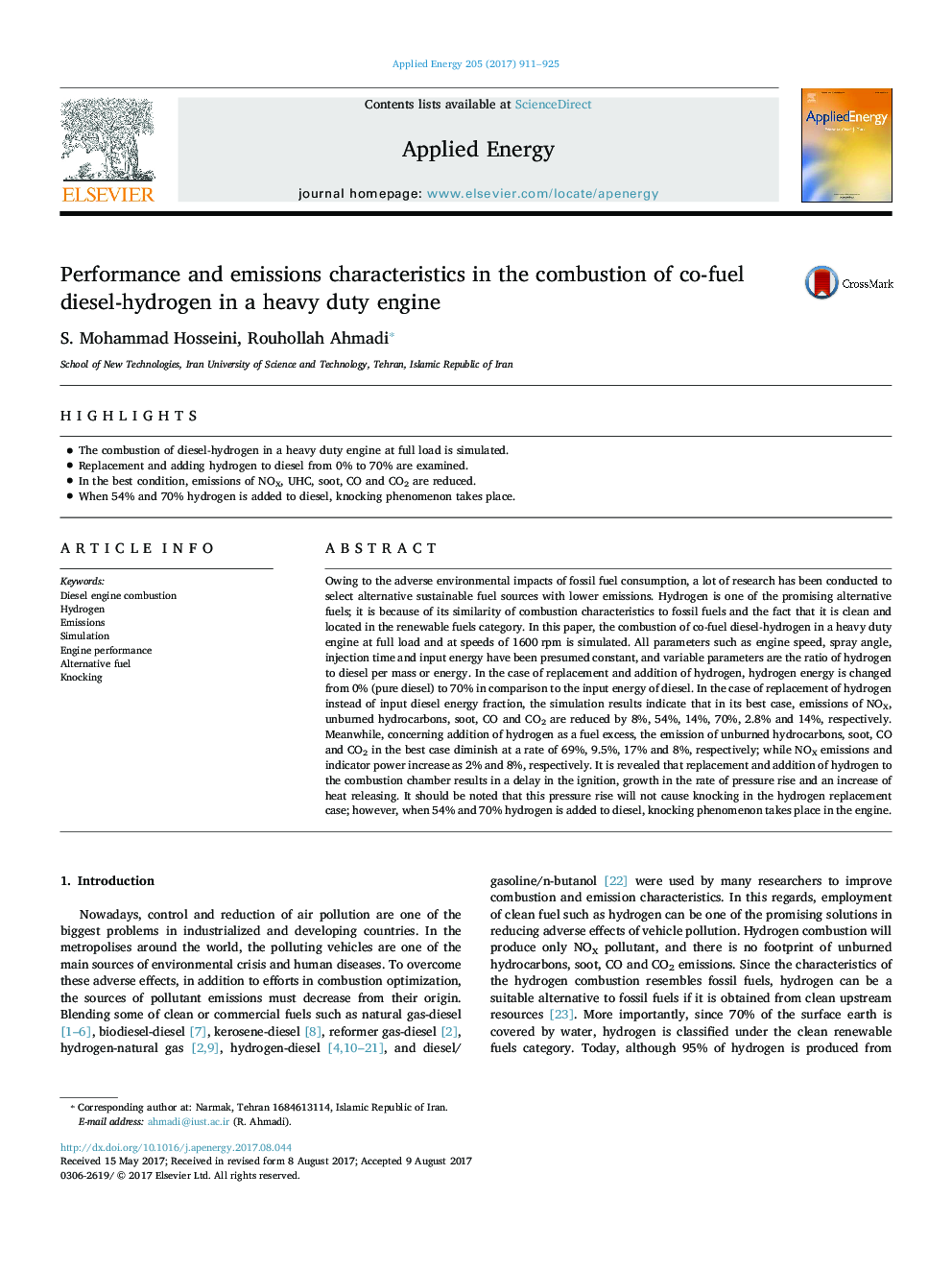| کد مقاله | کد نشریه | سال انتشار | مقاله انگلیسی | نسخه تمام متن |
|---|---|---|---|---|
| 4915900 | 1428085 | 2017 | 15 صفحه PDF | دانلود رایگان |
عنوان انگلیسی مقاله ISI
Performance and emissions characteristics in the combustion of co-fuel diesel-hydrogen in a heavy duty engine
ترجمه فارسی عنوان
ویژگی های عملکرد و انتشار در احتراق سوخت دیزل-هیدروژن مشترک در یک موتور سنگین
دانلود مقاله + سفارش ترجمه
دانلود مقاله ISI انگلیسی
رایگان برای ایرانیان
کلمات کلیدی
احتراق موتور دیزل، هیدروژن، انتشارات، شبیه سازی، عملکرد موتور، سوخت جایگزین، ضربه زدن،
موضوعات مرتبط
مهندسی و علوم پایه
مهندسی انرژی
مهندسی انرژی و فناوری های برق
چکیده انگلیسی
Owing to the adverse environmental impacts of fossil fuel consumption, a lot of research has been conducted to select alternative sustainable fuel sources with lower emissions. Hydrogen is one of the promising alternative fuels; it is because of its similarity of combustion characteristics to fossil fuels and the fact that it is clean and located in the renewable fuels category. In this paper, the combustion of co-fuel diesel-hydrogen in a heavy duty engine at full load and at speeds of 1600 rpm is simulated. All parameters such as engine speed, spray angle, injection time and input energy have been presumed constant, and variable parameters are the ratio of hydrogen to diesel per mass or energy. In the case of replacement and addition of hydrogen, hydrogen energy is changed from 0% (pure diesel) to 70% in comparison to the input energy of diesel. In the case of replacement of hydrogen instead of input diesel energy fraction, the simulation results indicate that in its best case, emissions of NOX, unburned hydrocarbons, soot, CO and CO2 are reduced by 8%, 54%, 14%, 70%, 2.8% and 14%, respectively. Meanwhile, concerning addition of hydrogen as a fuel excess, the emission of unburned hydrocarbons, soot, CO and CO2 in the best case diminish at a rate of 69%, 9.5%, 17% and 8%, respectively; while NOX emissions and indicator power increase as 2% and 8%, respectively. It is revealed that replacement and addition of hydrogen to the combustion chamber results in a delay in the ignition, growth in the rate of pressure rise and an increase of heat releasing. It should be noted that this pressure rise will not cause knocking in the hydrogen replacement case; however, when 54% and 70% hydrogen is added to diesel, knocking phenomenon takes place in the engine.
ناشر
Database: Elsevier - ScienceDirect (ساینس دایرکت)
Journal: Applied Energy - Volume 205, 1 November 2017, Pages 911-925
Journal: Applied Energy - Volume 205, 1 November 2017, Pages 911-925
نویسندگان
S. Mohammad Hosseini, Rouhollah Ahmadi,
